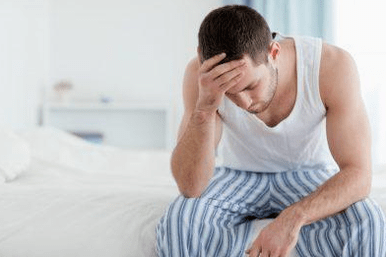
Prostatitis in men is an infectious or nonbacterial disease that can be acute or chronic.
Statistically, this diagnosis is becoming more frequent; the cause may be hormonal imbalance, infection, sedentary lifestyle, poor diet, or genetic predisposition.
The disease requires long-term, complex treatment, which can be done at home.
Can prostatitis be cured at home?
After 30 years, a man's prostate function may have problems, and he needs to find a way to treat prostatitis by himself.
Experts categorically do not recommend this, as the risk of complications and worsening of the condition is high.
Inflammation of the prostate worries many representatives of the dominant gender.If it is not treated promptly and adequately, it will not only cause discomfort to the patient, but also lead to more serious diseases.
In order for treatment to be successful, it is important to make the correct diagnosis as soon as possible.Traditional recipes, manual massage, or hardware manipulation can be very effective, but all procedures should be performed with the knowledge and permission of the attending physician.
Contacting a proctologist during the acute phase will help avoid the disease becoming chronic.
Once the diagnosis is confirmed, the doctor will develop a treatment plan and discuss it with the patient.
Some procedures can only be performed under expert supervision, while others can be performed by the patient independently or with the help of family members.
It is important to remember that self-treatment of prostatitis at home, separate from primary conservative treatment, is highly inadvisable.Not only will advice from friends and drug reviews online not 100% help you, they can also hurt you.
It's important to follow the rules - decide on a treatment plan first, and only then get started.
Some herbs may conflict with hormone medications, and antibiotics may disrupt hormone levels or digestion, requiring a special diet.
All these subtleties can only be considered by the attending physician.
Haphazard treatments and trying every known recipe will only do you harm.The result will be chronic prostatitis with possible complications: prostate adenoma or purulent abscess.
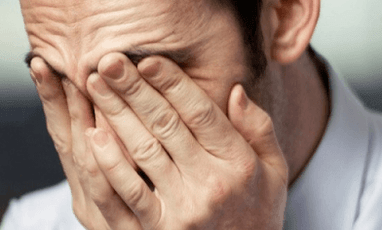
At-home treatments:
How to get rid of prostatitis at home?At home, you can have a range of procedures, from taking pills and injections to hydrotherapy and physical therapy.When starting a new procedure, monitor your health carefully; your treating physician will adjust your treatment plan if necessary.The first aid approach to prostatitis is to treat it with traditional medicine and exercise.
massage
Prostate massage helps cure prostatitis quickly.Manual massage is very effective for chronic prostatitis.
During exacerbations, there is no provision, but in remission, treatment can be resumed.
At home, you can rub your waist, buttocks, and lower abdomen evenly to avoid excessive stress.The procedure is performed in the morning, after bowel movements and before meals.Massage can be done 14 times a day, followed by rest.
Instead of manual massage, the lower body can be treated with a device with a special vibrating attachment.Kidney disease and severe skin damage (inflammation, eczema, rash) contraindicate this procedure.
Internal prostate massage is very effective.Must be started under expert supervision; self-massage can be performed after training.
Carefully insert your fingers into the anus and massage the surface of the rectum with very light, non-pressing movements.If swelling is severe and urination is difficult, it is not advisable to perform self-massage; it is better to entrust the procedure to a specialist.
therapeutic exercise
One of the causes of prostatitis is a sedentary lifestyle.In order to prevent the condition from getting worse and improve the general condition, it is necessary to increase physical activity and avoid overexertion.
Going to the gym and sports involving a lot of jumping and risk of injury should be avoided.But brisk walking, swimming and biking are shown.Patients are advised to engage in gentle exercise such as Qigong, Tai Chi or yoga.

Stretching and breathing exercises have a great effect on the state of the cardiovascular system and pelvic organs and will help improve the patient's condition and prevent new attacks.
Your daily routine should include morning exercises and a brief five-minute warm-up to relieve pressure on the prostate, bowel, and bladder.
Typical complexes may include:
- Pelvic rotation;
- Curved forward, backward and sideways;
- body rotation;
- legs together and apart;
- Swing your legs to the sides in different positions;
- Lunges, push-ups and squats.
All exercises are performed at a calm pace, controlled breathing, and maximum amplitude.It is recommended to alternate between standing, sitting on a chair or exercise ball, and lying down.Perform each move 1 or 2 ways 8-10 times.
water treatment
- Ordinary baths and sitz baths, contrast showers and sitz baths can provide relief to the patient's general condition.Taking a warm bath can completely calm you, reduce pain, and relax your muscles.Baths with decoctions or alcoholic tinctures of calendula, eucalyptus, sage, nettles and yarrow are useful.The water temperature should be comfortable; immerse your whole body in the bath, up to your heart.Programs last 7-10 minutes and sessions are designed for 5-7 baths per night.
- A cold sitz bath can help relieve swelling and reduce pain.This procedure is suitable for exacerbations of the disease; bathing time should not exceed 5 minutes to avoid hypothermia.Contrast showers help improve blood flow to the pelvic area.It involves soaking in moderate amounts of cold and hot water.This procedure is best performed in the morning as it strengthens and strengthens the immune system.
- Patients suffering from prostatitis are recommended to use thermal water therapy: Turkish bath, Russian bath or sauna.
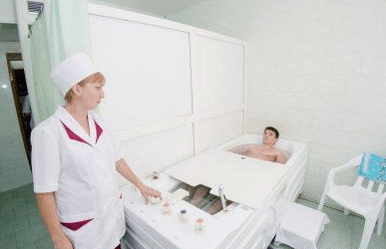 In a steam room, you should use aromatic oils or herbal infusions.Aromatherapy has a positive effect on prostate conditions.Try eucalyptus, sage, peppermint, lemon balm, lemon and basil oils.When cleaning, vigorously wipe the perineum, buttocks, thighs and waist with a towel to stimulate blood flow to the pelvic organs.During the period of worsening of the condition, it is forbidden to use a broom to bathe.
In a steam room, you should use aromatic oils or herbal infusions.Aromatherapy has a positive effect on prostate conditions.Try eucalyptus, sage, peppermint, lemon balm, lemon and basil oils.When cleaning, vigorously wipe the perineum, buttocks, thighs and waist with a towel to stimulate blood flow to the pelvic organs.During the period of worsening of the condition, it is forbidden to use a broom to bathe. - Diet plays a very important role in the treatment of acute or chronic prostatitis of any nature.It is important for patients to maintain a normal weight and avoid overeating that can lead to obesity.Eliminate fried foods, smoked foods, fast food and various snacks from the menu.
- For patients with prostatitis, it is very important to maintain a normal balance of trace elements. The diet should be rich in zinc, magnesium, iron, selenium and other elements.It is recommended that these ingredients be included in food rather than entering the body as part of a vitamin complex.Eat beef or chicken liver, pomegranates, seafood, seaweed, and eggs.The daily diet should contain at least 500 grams of fresh, stewed or boiled vegetables.Lycopene-rich tomatoes, varieties of cabbage (a valuable source of fiber), and sodium-rich root vegetables are top choices.It is recommended to consume at least 250 grams of fresh or baked fruits per day, as well as red and black berries, which improves blood formation.
- Chronic prostatitis requires giving up bad habits.It is necessary to quit smoking completely.Nicotine and tobacco tar can thin the walls of blood vessels and impair the blood supply to the pelvic organs.Alcohol promotes fluid retention in the body, which is harmful to the affected prostate.Limit it to 1 serving per week and choose natural wine.
It pays to reduce your intake of red meat, preferring lean poultry and fish, sea or freshwater meat.To improve digestion, whole grain cereals and low-fat fermented dairy products must be included in the diet.
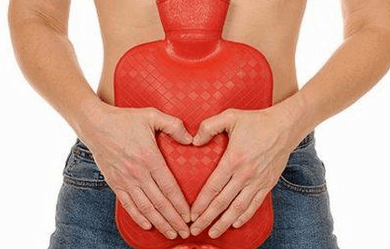
Treating male prostatitis with folk remedies
Traditional medicine offers a variety of medications for the treatment of prostatitis.
Treatment options may include medicated enemas and suppositories, patches and compresses, herbal decoctions, tinctures, balms and teas.
They relieve inflammation, reduce swelling, strengthen the immune system and soothe, allowing the body to fight disease more effectively.
To strengthen the body and restore blood flow, freshly squeezed carrots and beets are useful.They drink it 3 times a day before meals.
For calming, use an herbal mixture consisting of valerian, peppermint, lemon balm, nettle, sage, chamomile, hawthorn, sea buckthorn, rose hips.
Brew the raw materials with boiling water, cool, filter and drink like ordinary tea.
Homemade candles containing candied honey, potatoes, carrots or propolis will have a great softening effect.Roll it up with your hands, put it in the refrigerator, and insert it into your anus before going to bed.
Before surgery, it is recommended to perform an enema with a decoction of chamomile or a solution of potassium permanganate.
Applying mud can reduce pain and swelling.Warm herbal compresses, applied in 10 to 14 sessions, work well.
What if prostatitis doesn’t go away?
If prostatitis attacks become more frequent and remissions shorten, it makes sense to discuss the issue with your doctor.Patients will receive more powerful hormone treatments and, in extreme cases, surgical problems may arise.
If the following situation occurs, it means:
- at risk for malignancy;
- Presence of purulent abscess;
- Persistent swelling can put pressure on the urethra and bladder, preventing the normal passage of urine.
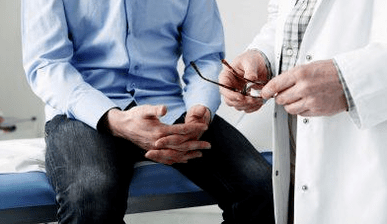
Depending on the nature of the disease, classic resection or mild laparoscopic surgery may be performed.
If the suspicion of malignancy is confirmed, a course of chemotherapy is given after removal of the prostate.
Typically, the recovery period takes several months before the patient's health is fully restored.
It is highly inadvisable to treat prostatitis on your own, especially if you are not completely sure of your diagnosis.
To treat prostatic inflammation, a correct diagnosis must be clearly verified.
Treatment for prostatitis at home can be multifaceted, including medications, traditional therapies, massage, and hardware stimulation.
But you should see your doctor first.
Home treatment should not be amateurish and uncontrolled; the treating proctologist should be entrusted with formulating the correct treatment plan.




































